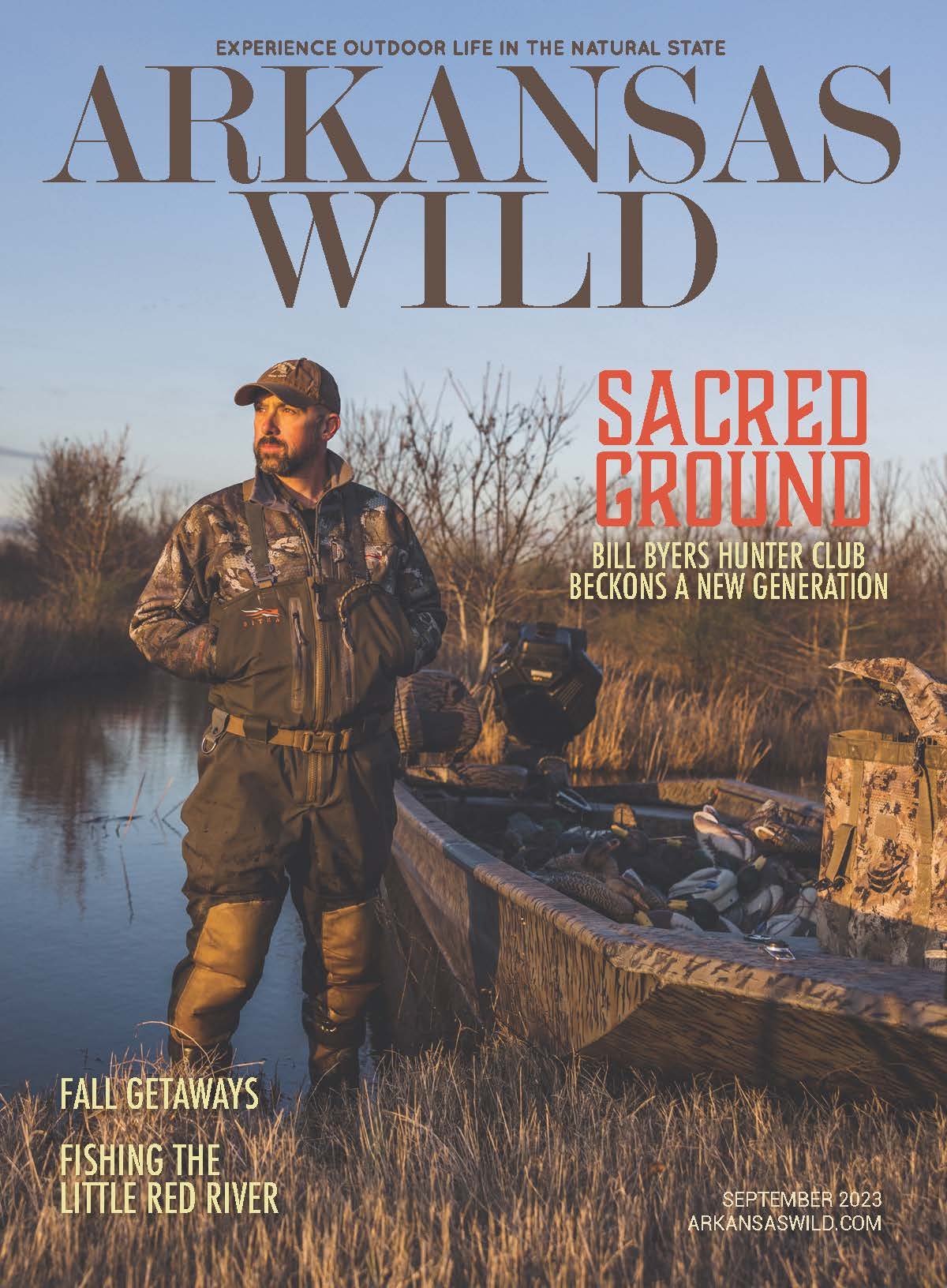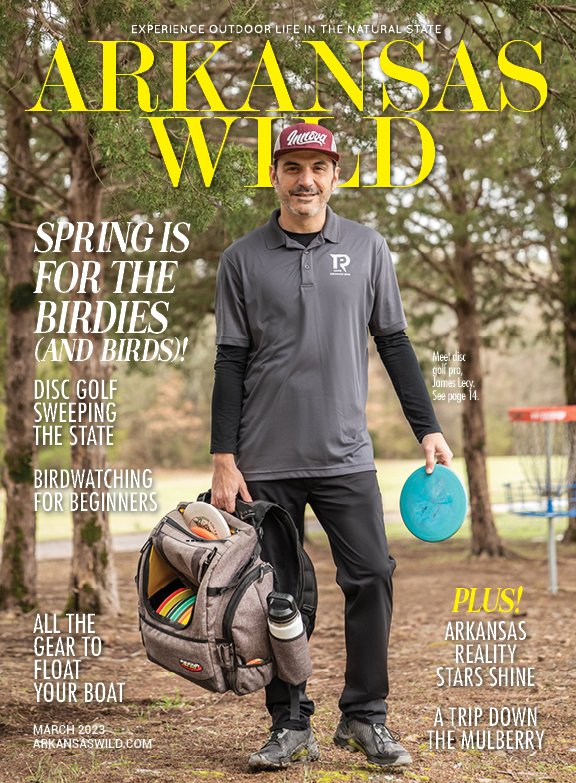State of The Natural State Address
Governor Asa Hutchinson, the WILD Interview
Governor Asa Hutchinson (right) shows off the days quarry with son John Paul
Raised on an Arkansas farm in Gravette, Governor Hutchinson’s boyhood was spent exploring the area’s woods and waterways. Later, he would pass that love along to his own children via family backpacking, camping and hiking excursions. Arkansas Wild sat down with Arkansas’s 46th chief executive to discuss the opportunities and challenges facing The Natural State, from marketing the outdoors to inspiring the next generation to get outside.
Arkansas Wild: Is the average Arkansan spoiled when it comes to appreciating what’s in their backyard?
I don’t think spoiled is the right word. I mean, that’s human nature to sometimes undervalue what’s close to you. But whenever (Arkansans) travel out of state or whenever they visit with out-of-state visitors, it doesn’t take long to recognize and appreciate how much we have here that needs to be protected and utilized. Whenever you look at the beauty of our landscape and the diversity of our landscape, this is a national treasure what we have here in Arkansas.
And yet, young people today don’t get outdoors like they used to and there are fewer hunters and anglers.
I do think there’s a desire by people in Arkansas to pass along our love of the outdoors to the next generation, but it’s not all-encompassing. We’re a growing state. We have people that move in here. It takes them a while to see what all we have here in this state.
But it’s also the nature of our society today. Millennials, video games and all the competition for time, we’re not getting outdoors as much. That is a concern and it just reinforces the importance of the outdoor education that we utilize through Game and Fish. I hope we can beat the trend and reinvigorate the next generation to appreciate all that we have and make outdoor recreation a part of their life.
What economic development potential does the outdoors hold for Arkansas?
Tourism is our No. 2 industry and a large part of our tourism is outdoor recreation from fishing, both bass and trout fishing, to our duck hunting and deer hunting.
That expands to our state parks system, which I include in our outdoor recreation, particularly among the tourists that we have from our friends from Texas and other regional states that come right here to Arkansas. That requires us to have a first-class funding mechanism for (state parks) to stay strong and vibrant.
I think the biggest challenge is the balance that we need to achieve. It’s the human footprint that is the biggest threat to some of our most beautiful, historic sites. In Arkansas, we have a vast arena of wilderness areas that are in a natural state and we want people to enjoy it, but we want to absolutely protect and preserve it and make sure they’re beautiful and pristine for the coming generations.
I think the biggest challenge is the balance that we need to achieve. It's the human footprint that is the biggest threat to some of our most beautiful, historic sites.
—Gov. Asa Hutchinson
There’s a movement in some communities to develop trails to attract visitors and new residents. Is this effective?
I think you’ve got to be careful to develop trails where it makes sense to develop trails. If it’s a site that has some natural beauty that needs to be seen and people want to see it, then that’s a good opportunity for a trail. But you don’t want to develop a trail in an area that people don’t want to come to. But thank goodness we have a lot of areas that are incredible, historic, beautiful areas that can be marketed, and it makes sense.
Serving commercial and natural interests is often a delicate balancing act. What kind of job are private landowners doing practicing sound conservation?
There’s not a more committed conservationist than a farmer. My dad on the farm taught me about soil erosion, ways to prevent that, about responsibility to being a good steward of the land. That is just ingrained into the farming culture. You want to live off the land, but at the same time you want to preserve it and make sure that it’s there for the next generation.
If you look at Northwest Arkansas, there was concern about poultry farming and the impact that it had on our wonderful rivers and streams. They didn’t wait for state regulation, they enacted best practices for handling the litter. As a result of that, you’ve seen the phosphorous levels reduce. You’ve seen some of the streams come back in their health.
You look over in the Delta region and whenever our alluvial plain is threatened, they recognize the need to utilize more surface water and conservation there. They’ve enacted better practices. They’re trying to develop some of these irrigation systems that will preserve the water table there. They recognize how important outdoor recreation is to the Delta and they want to see that expanded.
Are there particular issues or accomplishments that you feel typifies your administration regarding Arkansas’s outdoors?
Every governor is the chief marketer for their state. I use my voice as governor to recruit industry, to showcase our growth and all that we have in this state, including our outdoor recreation. I’ve done that by going on a bike ride on the Delta Heritage Trail. I’m the only governor that’s done that. I’ve enjoyed going down to the Bass Masters’ Tournament and showcasing them. I enjoy the trout fishing that we have and [First Lady Susan Hutchinson] enjoys it as well. All of that participation is marketing, but it’s also looking for opportunities to make a difference in preservation.
On the other hand, while I’ve got a great team that identifies land and things that are important, I make them make a strong case [for land acquisitions.] Every time the state acquires land, that diminishes the tax base for schools, so you want to really be careful about what the purpose of the acquisition is and is it necessary.
One of these important purchases that we have taken is the acquisition of Rattlesnake Ridge, which is an incredible piece of land near Pinnacle Mountain that has unique species there. That’s something that will be lasting.




